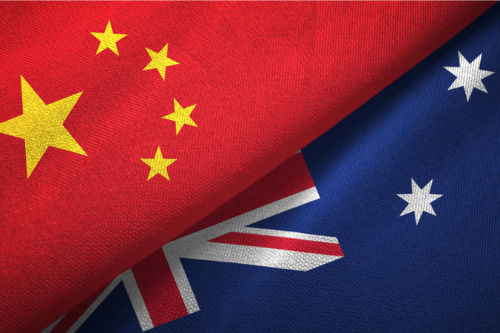

Though it’s a new year, political tensions between Australia and its largest trading partner, China, remain very much in place.
“From an economic perspective, the relationship between the countries has definitely deteriorated,” Françoise Huang, senior economist for Asia-Pacific at Euler Hermes, told Insurance Business.
“If we look back to when Australia banned Huawei from the 5G network rollout in 2018, we can see it as kind of a parallel development to the US-China trade war. However, 2020 definitely saw a worsening of the links between Australia and China, beginning with Australia’s call for an international inquiry into the origins of COVID-19 and continuing throughout the year.”
As a trade credit insurance specialist, Euler Hermes aims to cater for companies that are looking to expand their business in domestic or international markets but wish to protect their cash flows and accounts receivable. This insurance product can be particularly handy in instances when, much like China did to Australia in 2020, one country institutes heavy tariffs and levies on imports from another country.
“In terms of trade restrictions, it’s been mostly unilateral,” Huang noted. “While Australia hasn’t really put in any strong retaliatory measures against China, the official and unofficial tariffs that China has put in place for Australian imports are being felt quite quickly by Australia.”
Huang clarified that the way in which China had designed these tariffs was to target sectors that would negatively affect certain Australian exporters without much of a detrimental impact on the Chinese economy.
“If we look at the bilateral trade figures for beverages and spirits, for example, Australian exports to China of these goods represented less than 1% of Australia’s total exports in 2019,” she said.
“However, nearly 40% of Australia’s total beverage and spirit exports went directly to China. So, when China instituted tariffs on Australian wines, it had a much greater impact specifically on Australian exporters of beverages and spirits than the larger Australian economy itself and worked at a micro, rather than macro, level.”
Owing to a number of commercial and financial risk factors, Euler Hermes rates China as a medium-risk country for enterprise, meaning that there is a moderate risk of payment disruption in the short term. According to Huang, the Chinese economy is on a long-term trend of slowing growth that was temporarily disrupted by the COVID-19 pandemic in 2020, though it is likely that the Chinese economy will rebound in 2021 to previous levels of growth.
